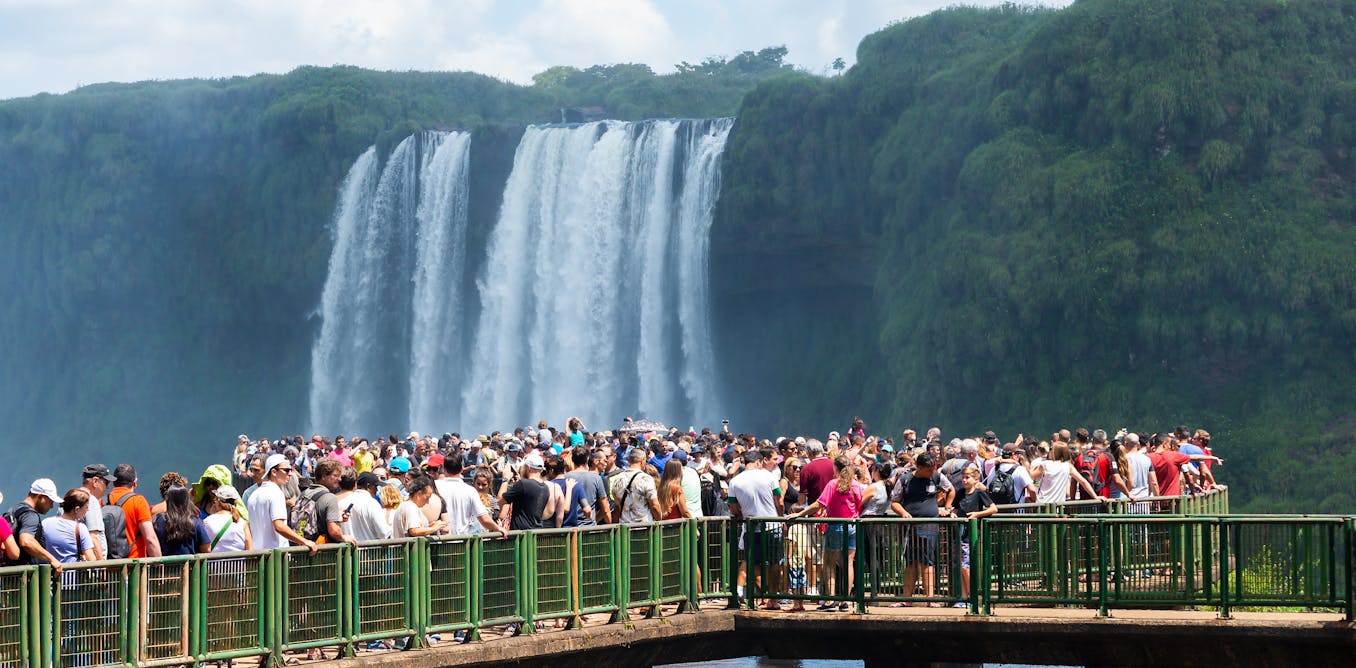Can AI Save Overcrowded Destinations? Tech's Role in Curbing Overtourism

The relentless rise of overtourism is straining destinations worldwide, impacting local communities, ecosystems, and the overall travel experience. While technology initially exacerbated the problem by making it easier than ever to discover and book trips, a new wave of innovation – particularly in Artificial Intelligence (AI) – offers a glimmer of hope for a more sustainable future for travel.
The Problem: How Technology Fueled Overtourism
For years, the internet has been a double-edged sword for tourism. Online travel agencies (OTAs), social media platforms, and review sites have democratized travel planning, allowing anyone to easily find and book a trip to virtually any corner of the globe. Instagram, in particular, has played a significant role, with viral photos showcasing idyllic locations often leading to a surge in visitors. This “Instagram effect” can quickly overwhelm fragile ecosystems and local infrastructure.
The ease of access, coupled with targeted advertising and personalized recommendations, has created a cycle of increased demand and, ultimately, overtourism. Popular destinations like Venice, Barcelona, and Santorini have struggled to cope with the sheer volume of visitors, leading to overcrowding, pollution, and resentment from local residents who are displaced or unable to afford to live in their own communities.
AI to the Rescue: A Technological Solution
Fortunately, the same technology that contributed to the problem can also be part of the solution. AI is emerging as a powerful tool for managing tourism and mitigating its negative impacts. Here's how:
- Demand Forecasting and Management: AI algorithms can analyze vast datasets – including historical travel patterns, social media trends, and economic indicators – to predict future demand with greater accuracy. This allows destinations to proactively manage visitor flow, implement pricing strategies, and allocate resources effectively.
- Personalized Recommendations for Alternative Destinations: Instead of directing everyone to the same overcrowded hotspots, AI can suggest lesser-known, equally appealing destinations based on individual traveler preferences. This distributes the tourism burden more evenly and supports local economies in less-visited areas.
- Dynamic Pricing and Capacity Control: AI-powered dynamic pricing models can adjust prices in real-time based on demand, discouraging visitors from traveling during peak times and incentivizing them to explore alternative options. Similarly, AI can help manage capacity limits in popular attractions, ensuring a more comfortable and sustainable experience for everyone.
- Smart Infrastructure Management: AI can optimize traffic flow, manage waste disposal, and monitor environmental conditions, helping destinations to better cope with the pressures of tourism.
- Real-Time Visitor Tracking and Management: Anonymized data from mobile devices can be used to track visitor movement in real-time, allowing authorities to identify potential bottlenecks and adjust strategies accordingly.
The Challenges Ahead
While the potential of AI in tackling overtourism is significant, there are challenges to overcome. Data privacy concerns, the need for robust infrastructure, and the potential for algorithmic bias are all important considerations. Furthermore, successful implementation requires collaboration between governments, tourism businesses, and local communities.
Looking Ahead: A Sustainable Future for Travel
AI isn't a silver bullet, but it represents a crucial step towards a more sustainable and equitable future for travel. By harnessing the power of technology responsibly, we can protect the places we love and ensure that tourism benefits both visitors and local communities for generations to come. The key is to move beyond simply facilitating travel to actively managing it, ensuring that it aligns with the principles of sustainability and respect for the environment and local cultures. The future of travel depends on our ability to leverage technology for good, creating a world where exploration and preservation go hand in hand.






